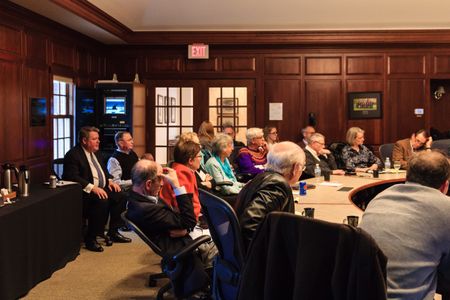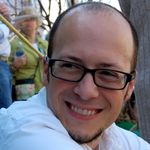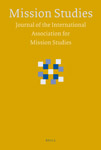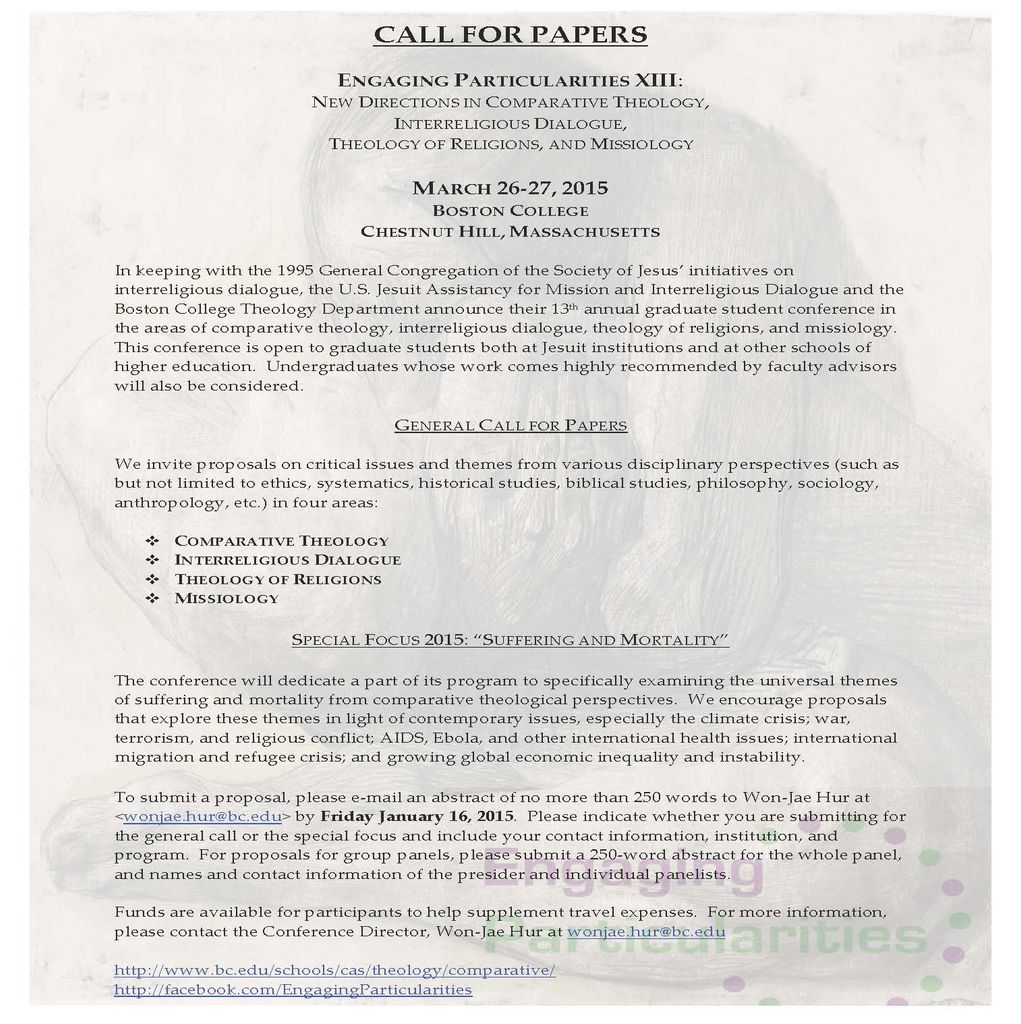News of the extended network of faculty, alumni, students, visiting researchers, and mission partners is regularly updated, and some of the big ideas or major events in Global Christianity are covered in the CGCM News.
Ecumenism of Suffering
 The Eastern Fellowship of the American Society of Missiology held its annual meeting November 7-8, 2014 at the Maryknoll Mission Institute. The subject this year was "Christian Mission in Times of Persecution." Nina Shea, of the Washington-based Hudson Institute provided a summary of contemporary religious persecution, and Titus Presler reflected on "The Toll on the Soul" of those living amidst oppressive conditions. Boston University was well represented at the event. In addition to alumnus Titus Presler, Professors Dana Robert and Inus Daneel attended, as well as eleven students.
The Eastern Fellowship of the American Society of Missiology held its annual meeting November 7-8, 2014 at the Maryknoll Mission Institute. The subject this year was "Christian Mission in Times of Persecution." Nina Shea, of the Washington-based Hudson Institute provided a summary of contemporary religious persecution, and Titus Presler reflected on "The Toll on the Soul" of those living amidst oppressive conditions. Boston University was well represented at the event. In addition to alumnus Titus Presler, Professors Dana Robert and Inus Daneel attended, as well as eleven students.
Partnering to Study the Korean Diaspora in Boston
The Center for Global Christianity & Mission has partnered with the East Rock Institute to uncover the stories of the Korean diaspora in Boston. As the partnership enters its third year, scholars have pieced together a number of fascinating stories. Topics range from the education of Yi Ku, the last prince of the Chosen dynasty to the involvement of Koreans in the Boston marathon.
The East Rock Institute has recently released a newsletter about some of its other projects.
American Evangelicals and Missions

Since 1988, Dana Robert has served on the Board of the Institute for the Study of American Evangelicals. Over the years, the ISAE produced important literature on a number of topics, including the relationship between American Evangelicalism and missions. At the end of October, the ISAE gathered for the final time. They both looked to the past, and what the institute has accomplished, as well as to the future and what horizons are yet to be explored.
University of Dubuque hires Chris James as instructor in Evangelism & Missional Christianity
 Evangelism and mission are increasingly important aspects of theological education in seminaries. CGCM student associate and PhD candidate Christopher James will soon start a new position teaching and researching in these areas as a faculty instructor in Evangelism and Missional Christianity at University of Dubuque Theological Seminary in Dubuque, Iowa. James is currently working to complete his dissertation tentatively titled is "New Ecclesial Life in a Post-Christian Context: A Practical Ecclesiology."
Evangelism and mission are increasingly important aspects of theological education in seminaries. CGCM student associate and PhD candidate Christopher James will soon start a new position teaching and researching in these areas as a faculty instructor in Evangelism and Missional Christianity at University of Dubuque Theological Seminary in Dubuque, Iowa. James is currently working to complete his dissertation tentatively titled is "New Ecclesial Life in a Post-Christian Context: A Practical Ecclesiology."
You can connect with Chris and follow his work through: Academia, Twitter, and his Website.
Call for Papers: Missions to China and the Origins of Sinology
Call for Papers:
James Legge: Missions to China and the Origins of Sinology
University of Edinburgh, 11–13 June 2015
Deadline for proposals: 31 March 2015
Inside and outside of China, there is a growing scholarly debate around how foreigners have contributed to and, at times, maligned prevailing understandings of Chinese philosophy, religion, and culture. One of the most important figures in these discussions is James Legge, the Scottish missionary-scholar to China, and translator of Chinese writings into English and Christian writings into Chinese. As 2015 will be the bicentennial of Legge’s birth, the University of Edinburgh’s Centre for the Study of World Christianity, in collaboration with the Scottish Centre for Chinese Studies, plans to hold an international and interdisciplinary conference to be held on 11–13 June 2015 at the University of Edinburgh, where Legge received an honorary doctorate (LLD) in 1884.
Under the theme ‘James Legge: Missions to China and the Origins of Sinology’ we hope to revisit Legge from multiple disciplinary orientations, including missions history, theology, sinology, cultural and literary studies, and education. The conference will feature two evening keynote public lectures delivered by Lauren Pfister (Hong Kong Baptist University) and Yang Huilin (Renmin University of China), providing critical readings of James Legge from Western and Chinese vantage points respectively. The conference organisers welcome proposals for a 20–25min oral presentation, which will be followed by a brief discussion. While not meant to be exhaustive, some guiding questions for proposals include:
• How has Legge’s work stimulated or hindered the developments of sinology, comparative religion, or today’s ‘classical studies fever’ (guoxue re)?
• In what ways can Legge be fruitfully compared with other late 19th and early 20th century European interpreters of ‘the Orient’ like Max Müller, Robert Morrison, Timothy Richard, John Ross, etc., or with his Chinese collaborators He Jinshan, Wang Tao, Hong Rengan, etc.?
• How has the legacy of Legge affected the developments of Chinese Christianity?
• What can be said of the cultural and literary contributions of Legge, and the hermeneutical methodologies he employed?
• To what extent should Legge be understood as an educator, particularly from his time in the Anglo-Chinese College or in the University of Oxford?
Inquiries and proposals can be emailed to cswc-events@ed.ac.uk. The deadline for proposals is 31 March 2015, and should include a title, an abstract of 250–300 words, and a brief biographical note of 2–3 lines. Decisions on proposals will be given by 30 April 2015.
Conference delegates will be expected to find their own funding for travel, accommodations, and a nominal registration fee. Delegates from China can consider applying for a grant from the Universities’ China Committee in London.
Call for Papers: Controversies in Mission
The regional meeting of the Evangelical Mission Society will meet in Flushing, New York on March 28, 2015. The topic will be "Controversies in Mission." Some papers will be selected to be read at the national meeting in Dallas in September 2015.
Call for Papers: Engaging Particularities
On March 26-27, 2015, Boston College will host "Engaging Particularities XIII: New Directions in Comparative Theology, Interreligious Dialogue, Theology of Religions, and Missiology."
Evaluating the East African Revival
 Daewon Moon, who is currently studying the East African revival in Burundi, reviewed Kevin Ward and Emma Wild Wood's The East African revival: History and Legacies in the journal Mission Studies.
Daewon Moon, who is currently studying the East African revival in Burundi, reviewed Kevin Ward and Emma Wild Wood's The East African revival: History and Legacies in the journal Mission Studies.
Call for Papers: Paul Hiebert’s Missiology and Beyond
The Hiebert Global Center at TEDS is pleased to announce the Call for Papers for master’s and doctoral students to present at the Hiebert Track at the 2015 EMS North Central Region conference, which will be held on April 4th 2015 at Trinity International University in Deerfield, Illinois.
The aim of the Hiebert Track is to engage with various aspects of Paul Hiebert’s missiology (contextualization, spiritual warfare, epistemology, missional theology, etc) in order to bring his ideas to bear upon contemporary issues in global Christianity, as well as to build upon Hiebert’s ideas to contribute to the further development of the future of intercultural ministries.
Proposal
Students should submit a 200-300 word proposal by December 10, 2014. Those whose proposals are accepted will need to submit the full-length paper by Feb 10, 2015. Five papers will be chosen for the Hiebert Scholarship award (Further instructions will be provided on acceptance).
Hiebert Scholarships
1st Place - $2,000 (1 award), 2nd Place - $1,000 (2 awards), 3rd Place - $ 500 (2 awards)
Scholarship recipients will have the opportunity to present their papers at the 2015 annual EMS North Central Region missiology conference. Their papers will also be published in a compendium of the Hiebert Track (publisher TBD).
Contact & Submit your proposal to hiebertproject@tiu.edu or danbaeq@gmail.com
For further information visit http://www.hiebertglobalcenter.org
Religious Vibrancy: A Look at the Numbers
 Gina Zurlo co-edited the Yearbook of International Religious Demography, the first in an annual series that gives a snapshot of the world's religious landscape, coupled with social scientific articles on specific countries and trends in religion around the world.
Gina Zurlo co-edited the Yearbook of International Religious Demography, the first in an annual series that gives a snapshot of the world's religious landscape, coupled with social scientific articles on specific countries and trends in religion around the world.
